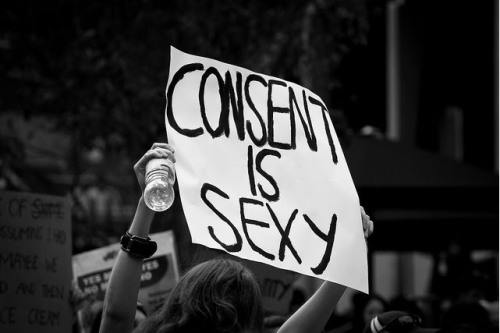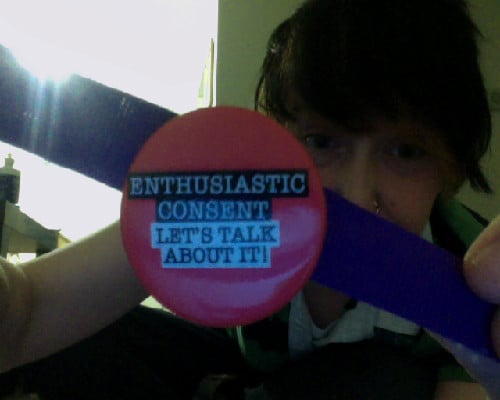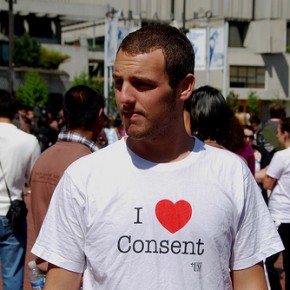This is the second entry in the Atheist round of the 2013 Ideological Turing Test. This year, atheists and Christians responded to questions about sex, death, and literature.
Polyamory
I admit, when I heard that polyamory was going to be one of the topics of this year’s ideological Turing test, this wasn’t how I was hoping the question would be framed. The “sacramental” side is awkward to answer as an atheist, and I’m not quite sure what to say about the policy question. But then, I shouldn’t complain about a challenge, so here it goes (though the standard internet disclaimer I Am Not A Lawyer applies).
On a practical level, I don’t think polyamory is for everyone, but I think people who think polyamorous relationships (or nonmonogamous relationships more generally) never work don’t know enough poly people. (Or don’t know that they know them. Plenty of people in non-monogamous relationships aren’t out about that fact.) And on a moral level, I can’t even fathom why anyone would think nonmonogamy is automatically wrong regardless of whether it works for the people involved.
Legally speaking, I certainly don’t think there should be laws against adultery, and I think even fundamentalist Mormon polygamists should be left alone if they aren’t breaking any other laws (like age of consent laws). Whether civil marriage marriage should be open to groups of more than two people is (at least potentially) a more complicated issue, though.
I say “at least potentially,” because I’ve run across one polyamory advocate on the internet who insisted it wasn’ta complicated issue and that it would be a simple matter of repealing laws against bigamy. Color me skeptical, however. In the US, at least, marriage carries with it a wide range of legal privileges, some of which seem designed with only two people in mind. For example, it would probably not be possible to require employers and insurance companies that offer family health care plans to cover an indefinite number of spouses (at least, not without costing more, in the case of insurance companies).
Now, the issue of health insurance is going to be much less of an issue in rich countries other than the US, which generally have well-established systems of universal health care. And in fact, I’ve been told that many countries are, in general, moving to make legal marriage less important. If this is true, it lends plausibility to the point of view that the state should get out of the marriage business entirely.
I’m not suggesting that’s something we should try to do in the very near future, again at least not in the US. As I’ve already said, marriage is, legally speaking, a big deal in the US, and not having access to some of the associated legal privileges can be a huge problem for some couples, as we all should have learned by now from following the gay marriage debate. So whatever we do, it can’t be as simple as abolishing legal marriage tomorrow.
But maybe we should be looking at emulating those other countries where marriage has less legal significance. The Affordable Care Act, which tries to make health insurance affordable for everyone regardless of whether they or their spouse has a job that provides health insurance could, in a sense, be viewed as a step in that direction, and it’s a step I, for one, am very glad for.
Euthanasia
I wrote this part of my entry well in advance of the deadline, and then decided to completely rewrite it in the middle of the Christian round after Scott Alexander, a psychiatry resident who blogs at SlateStarCodex.com, wrote a blog post which I recommend everyone read, titled, “Who By Very Slow Decay.” While you’re at it, go also read his, “In Defense of Psych Treatment for Attempted Suicide.”
The take away from these two posts, in reversed order, is that on the one hand lots of people who attempt suicide do so because they’re mentally ill, not just because of depression but also because of many other mental illnesses. These people, when they don’t succeed in killing themselves, tend not to try again and are often in fact very glad they didn’t succeed. We need mechanisms in place to prevent these people from successfully killing themselves and to get them the treatment they need.
On the other hand, dying is unspeakably horrible, not just because you’re dead afterwords but because the process tends to be unspeakably horrible, and also slow. Having a dad who’s a health care provider, I could add to the examples Scott gives. Knowing all that convinces me it’s really important for people who want to be able to die as quickly and painlessly as possible when their only other option is to die slowly and horribly should be able to do the first one.
As for exactly what rules should govern assisted suicide and euthanasia, while I’m more sympathetic to consequentialism than most people, I have trouble swallowing the consequentialist view that there is never any moral difference between killing and letting die, and on a practical level (slippery slope arguments and so on) I think we have someone more reason to be worried about providing a lethal dose of a drug the proverbial unplugging of the machines. And within the first category, I’m less worried about providing patients with a lethal prescription to take themselves (which provides reassurance that it’s what they really want) than I am about doctors administering the medication.
That said, the worst case scenarios people imagine for countries like the Netherlands (people being pressured into euthanasia against their will) have, to the best of my knowledge, failed to materialize. Because of that, I’d be tentatively supportive of similar legislation being introduced in this country (not that that will happen anytime soon). I definitely think existing laws in Washington state and Oregon are better than completely prohibiting physician assisted suicide.
You can vote on whether you think these answers were written by a Christian or an Atheist here. Comments are open to discuss the substance of the post and for speculation about the true beliefs of the author, so please vote before looking at the comments.
























